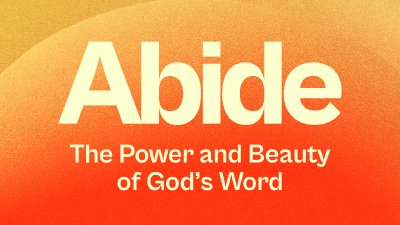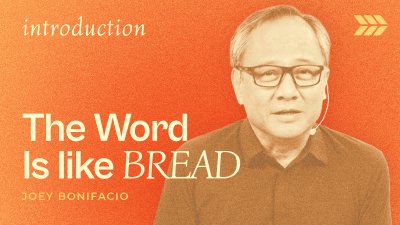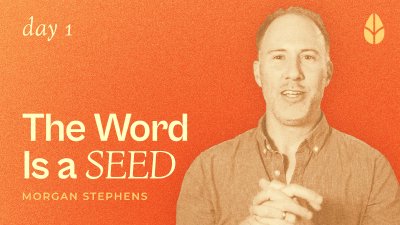Read Hebrews 4:1–12
“For the word of God is living and active, sharper than any two-edged sword, piercing to the division of soul and of spirit, of joints and of marrow, and discerning the thoughts and intentions of the heart.” — Hebrews 4:12
Leading up to Hebrews 4:12, the author speaks about a Sabbath rest that God has for us. While this Sabbath rest was offered to the Israelites, their disobedience and unbelief kept them from entering it. Now, this Sabbath rest is provided to those in Christ, but the author of Hebrews warns us not to take it for granted like the Israelites did so that we won’t fall by the same sort of disobedience.
The author of Hebrews then talks about the power of the Word of God, comparing it to a double-edged sword. With swords, there are different types of blades, each designed for a different purpose. Some are meant for force, while others are meant for accuracy. A double-edged sword, sharpened on both sides, is uniquely designed to pierce its mark with precision.
As we learned from James, the Word of God shows us what we’re really like, and as we learned from Jeremiah, God’s Word has the power to crush our sin-hardened hearts. Now here in Hebrews, we find that the Word of God is a double-edged sword, able to pierce to the division of soul and spirit, of joints and marrow. Essentially, this means that it can penetrate to the very core and essence of who we are. But the author also says that the Word of God is living and active, meaning that it doesn’t just pierce our heart, showing us who we are and convicting us of our sin, but it has the power to transform us from the inside out.
As we live out our salvation in Jesus, we don’t want to fall by the same disobedience and unbelief that the Israelites did in the wilderness. But as we read the living and active Word, this double-edged sword will pierce us, showing us what’s really in our hearts and transforming us more and more into Christ’s image as we respond in repentance and faith.
Reflect:
1. Faith and repentance are gifts from God that draw us closer to him. Have you thanked him for these gifts?
2. What areas in your life are you in faith to see the Word transform?
Pray:
“For the word of God is living and active, sharper than any two-edged sword, piercing to the division of soul and of spirit, of joints and of marrow, and discerning the thoughts and intentions of the heart.” — Hebrews 4:12
O Lord, thank you for your living and active Word that transforms me from the inside out. I choose to abide in it even as it cuts through the hard places of my heart. Lord, I repent of when I have conformed to the world’s standards. I pray that you would transform and renew my mind as I meditate on your Word daily. Increase my faith and make me more like Christ as I read it. Amen.
GOD’S WORD TRANSFORMS US.

Day 5
The Word Is a Sword
Hebrews 4:1–12, Ephesians 6:13–17
More from
Abide







